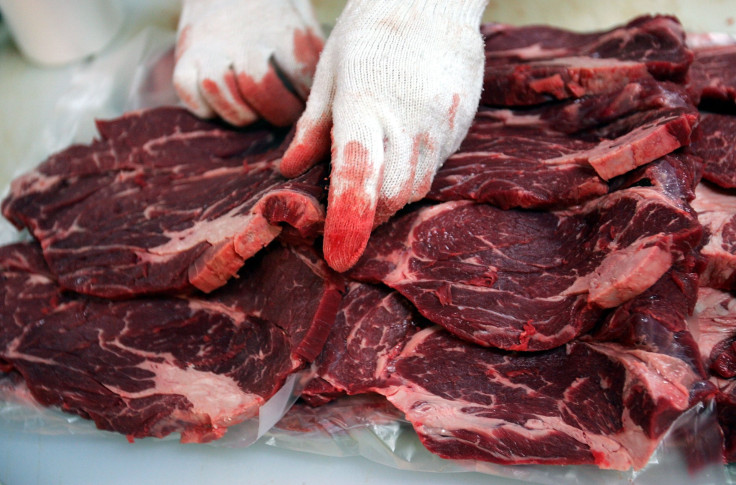US Cattlemen's Association Petitions To Strictly Define 'Meat' And 'Beef'

Earlier this month, the U.S. Cattlemen’s Association filed a 15-page petition with the U.S. Department of Agriculture (USDA) to officially define the term “beef” and "meat" after reports surfaced that companies like Impossible Foods and Beyond Meat were on a race to substitute meat with plant based ingredients.
An ingenious combination of science and plant based ingredients is said to be able to replace real meat burgers with a healthy alternative that will reportedly taste like the real thing, according to a USA Today article.
"While at this time alternative protein sources are not a direct threat to the beef industry, we do see improper labeling of these products as misleading," said Lia Biondo, the association's policy and outreach director. "Our goal is to head off the problem before it becomes a larger issue."
The ranchers' issue with"fake meat" arose when well-funded technological companies like Beyond Meat touted creating vegetable burgers, sausages and steaks that resemble and taste like the real thing.
The association argues that if companies are allowed to label something as beef or meat, it should be associated with the flesh of the cattle. So companies labeling their products as meat was by default erroneous and misleading, since the companies use ingredients devoid of any flesh obtained from cattle.

However, founder and CEO of Beyond Meat Ethan Brown believes customers already know what they are looking for and will not be thrown off with similar terms. Brown who doesn’t perceive the petition as a threat said: "I think it actually could help us more than it could hurt us because it starts the national dialogue around what really is meat, and if the origin of meat really matters to the consumer."
While the ranchers might deplore the use of the similar term in fear of a looming threat to the beef industry, veggie meat has morphed into a growing trend in the food industry.
According to the report in USA Today, data from HealthFocus International alleges 60% of U.S. consumers are cutting down on their meat consumption. This could result in a conflict between the cattlemen and the technological companies who are cashing in with the meat substitutes.
"We think that the cattlemen could face their competition head on," said Jessica Almy, policy director at the Good Food Institute. "Or like Tyson and Cargill, they could invest in the future. But rather than do that, they're petitioning the USDA to police the use of certain terms on labels and skew the playing field in the cattlemen's favor," she added, referring to the future of the meat industry. Companies like Tyson Foods are investing in the lab-grown meat products.
Almy felt the petition filed with the USDA will invariably result in a loss for the cattlemen since the proposal would violate the First Amendment.
"I certainly think that with this petition, the cattlemen are asking the USDA to set itself up to lose in court," said Almy. "I think their proposal would violate the First Amendment if the USDA adopted it. The government only has the authority to regulate free speech, like telling plant-based and clean-meat companies how to label their products, if it's necessary to ensure consumers aren't misled."
© Copyright IBTimes 2025. All rights reserved.





















